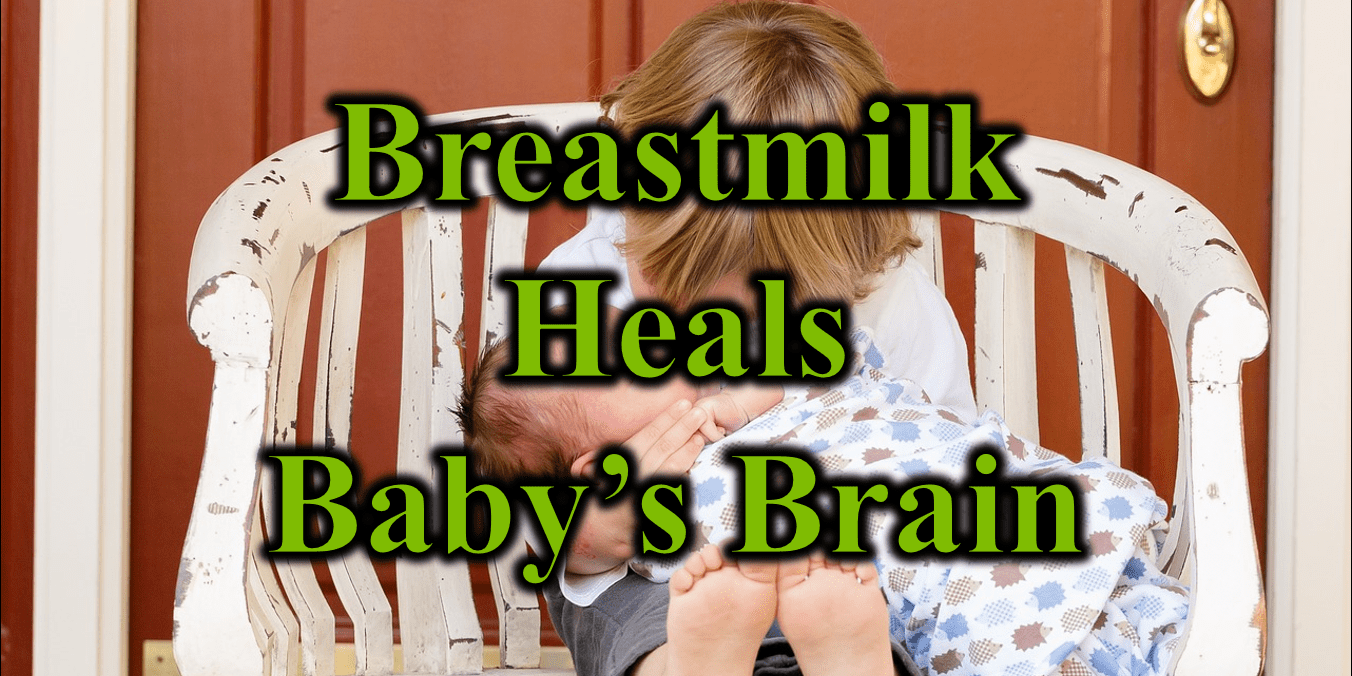Breastmilk has scored many wins in recent years as scientists repeatedly uncover new ways this amazing substance benefits human health from infancy into adulthood. So many life critical and life enhancing substances have been isolated from breastmilk. So many disease processes have been demonstrated to be influenced by the duration of breastfeeding, including asthma and eczema. So many effects have been seen in developing children from IQ to behavioral outcomes. Despite the push in the past to convince mothers that science could offer better options in formulas, scientists once again find something hidden away in breastmilk, something that may even help children born with cerebral palsy.
Cerebral palsy occurs prenatally or postnatally when some injury to the baby’s developing brain disrupts normal connections between brain cells. Whether this is from lack of oxygen to the baby’s brain, inflammation from infections, or secondary to toxins, the end result is abnormal neurological development leading to motor and/or cognitive disabilities. Once this damage occurs, the child grows up with varying degrees of health challenges that must be managed.
Finding a means to repair the damaged brain cells and their connections called axons could offer huge benefits for those suffering with cerebral palsy. The axons which carry the messages of one nerve to another are a major site of damage in cerebral palsy and are not easily repaired. One of the difficulties in repairing these axons is the necessity of wrapping them with a fatty insulation called myelin. Without this fatty covering, the axons do not function normally.
In a mouse model, researchers isolated a fat, 20-αHydroxycholesterol (20HC), which they found could stimulate the production of more myelin by cells called oligodendroctyes. The oligodendrocytes are responsible for wrapping the axons with myelin and keeping the myelin as well as the axons functional and healthy. The potential time window for repair is the greatest during early infancy as the infant brain still possesses a high number of neural stem cells which can be transformed into functioning oligodendrocyte cells. Increasing the intake of 20-αHydroxycholesterol (20HC) therefore has the potential to salvage brain tissue at a critical juncture for repair of damage that would otherwise cause cerebral palsy.
In the mouse model, injection of this breastmilk fat not only induced increased myelination in the mice but improved motor function in the mice who were allowed to grow up after experimentally causing cerebral palsy in them. Besides seeing increases in myelination and improved motor outcomes, they also identified the mechanistic steps by which this fat caused such changes. Therefore, they were able to combine the findings of microscopically visible changes, with the mechanisms underlying them and with actual clinical outcomes. This serves as solid proof of concept that deserves further study in human experiments. The beauty of the discovery lies in the fact that the fatty substance can already be considered very safe given its origin from breastmilk.
Once again, God’s design in nature, this time in breastmilk, demonstrates that he has woven many amazing substances into creation. As we uncover these hidden wonders, we pray that we can employ them in ways to further help the children who suffer from the effects of early life brain injury leading to cerebral palsy. Until we learn more in how to use this fat from breastmilk in more concentrated forms, we can continue to help our patients live healthier more abundant lives by encouraging breast feeding for all babies.
Original Article:
Agnes S. Chao, Pavle Matak, Kelly Pegram, James Powers, Collin Hutson, Rebecca Jo, Laura Dubois, J. Will Thompson, P. Brian Smith, Vaibhav Jain, Chunlei Liu, Noelle E. Younge, Blaire Rikard, Estefany Y. Reyes, Mari L. Shinohara, Simon G. Gregory, Ronald N. Goldberg, Eric J. Benner. 20-αHydroxycholesterol, an oxysterol in human breast milk, reverses mouse neonatal white matter injury through Gli-dependent oligodendrogenesis. Cell Stem Cell, 2023; 30 (8): 1054 DOI: 10.1016/j.stem.2023.07.010
Thanks to Science Daily:
Duke University Medical Center. “Newly identified lipid in breast milk might reduce cerebral palsy in infants: In animal studies, the fat molecule encourages stem cells to generate new cells that produce the brain’s white matter.” ScienceDaily. ScienceDaily, 3 August 2023. <www.sciencedaily.com/releases/2023/08/230803113023.htm>.00
Sanctuary Functional Medicine, under the direction of Dr Eric Potter, IFMCP MD, provides functional medicine services to Nashville, Middle Tennessee and beyond. We frequently treat patients from Kentucky, Alabama, Mississippi, Georgia, Ohio, Indiana, and more... offering the hope of healthier more abundant lives to those with chronic illness.







